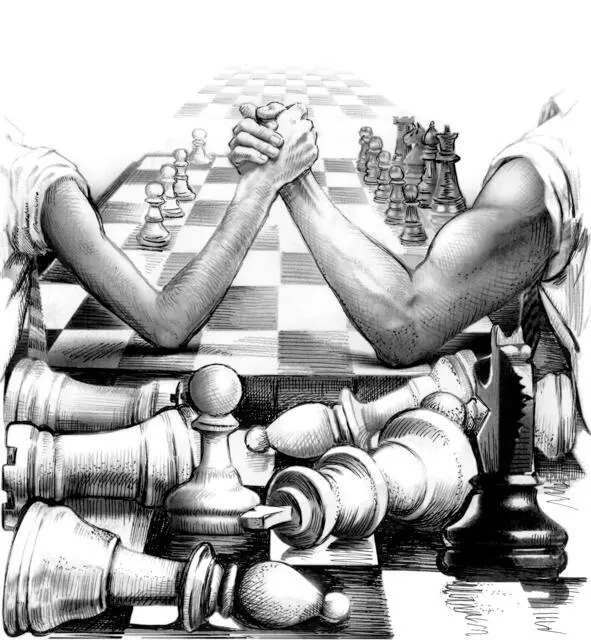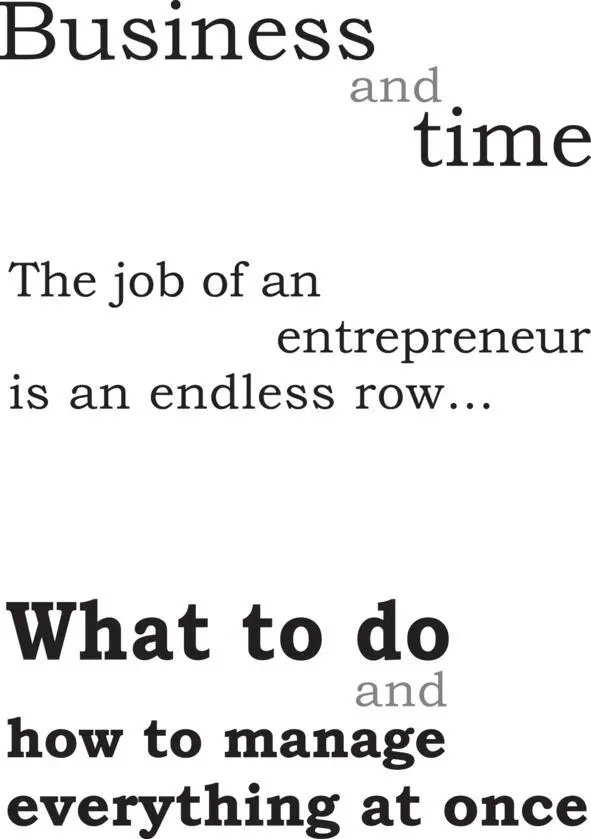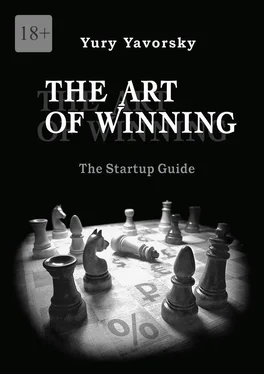
I have mentioned before that when the business environment starts devouring all the time an entrepreneur has, he or she inevitably hires other people to boost the production and sales. But it will not get any easier unless you concern yourself with the HR policy, get to know more complicated accounting techniques and arrange the production system. In this case it is very important to perfect the schemes and mechanisms of profit-making in the face of the growing expenses (salaries, the amount of rented facilities, transport, etc.). Theoretical knowledge given at colleges and universities is not enough. Until the aspiring entrepreneur fully understands the entire mechanism of controlling overhead expenses in the course of the production process and gains the first profits, they will never get the feel of how their business is functioning. Evaluate the advantages and disadvantages of certain steps you take, dispose of the first and increase the second. And even if the business is growing successfully, one should never stop developing it, otherwise the vector of luck will immediately go down.
The job of an entrepreneur is an endless row of events and struggles. If you are truly interested in business, you should accept a simple truth: entrepreneurs virtually exchange their time, their loved ones and themselves for what they do and love.

Becoming an entrepreneur is not something one can do effortlessly. But what you can do is grow into an entrepreneur following the rules of the consumer market and at the same time breaking them. This is something that only people with non-standard abilities and way of thinking can allow themselves to do.
The crucial quality of a future entrepreneur is the ability to “compose” the process. An entrepreneur must be a “composer” or aspire to become one.
It is great for a burgeoning entrepreneur to combine the qualities of a “creator” and an “organizer”. A businessman must not only be able to “create a melody”, but also to “organize” its production and marketing moving from the handicraft stage to the stage of modern structured production.
Creativity, aimed not only at producing goods and services, but also at their marketing is the cornerstone, or one might even say, the philosopher’s stone of entrepreneurship.
Many examples of success on the market are based on exceptions, and it is those exceptions that modern gurus use as the basis of their training programs in business schools. However, the reality of business is way beyond the examples of Coca-Cola, McDonalds, Microsoft, Ford, Trump or Steve Jobs.
The overwhelming majority of aspiring entrepreneurs do not understand how one can create such a miracle as the Internet, or to build a company like Apple, Facebook or Skype.

Entrepreneurship is a daily routine full of headaches and hard work which very rarely turns into a celebration of an unexpected financial success. Moreover, success must never be a one-time thing, but a matter of years and stable growth. A business process can be compared to an escalator that only moves downwards. Want to be successful? Walk upwards. Want to get ahead of the others? Run without stopping.
So, your business has taken off, you reached your first success – you allow yourself to buy an expensive car and an elite house guided, at times, not only by your own desires, but rather by the established traditions…
A villa, a yacht, VIP-resorts, exotic countries – out of fear to lose all that the entrepreneur holds on to the steering wheel of their business so desperately that it gives them white knuckles. But as long as you are driving on your own, you remain a manager. This kind of a “split personality” – the owner and the manager – is like being a composer, who spends most of his time at the piano, but simultaneously acts as a musician in the orchestra of his own creation. To avoid wasting energy that can be channeled into creativity, the “entrepreneur-composer” must only “compose” the business, and the management itself can be delegated into the hands of a hired manager.
Success in the competitive struggle is a result of constant growth, as well as an ability to suggest new interesting methods of promoting your products and services and constant renewal. If at the same time the entrepreneur remains a “composer”, they will always be one step ahead of their opponents.
However, there is a limit to any development, so we are inevitably facing the following question: how can you determine your maximum? Should you be satisfied with owing a cigarette stall, a hairdresser’s or a small bakery? Is there a possibility to run a small-sized business your whole life limiting your expenses at the very beginning? Originally no one thinks about how high they will rise, but even those who sell homespun stockings or stamp metal want their products and their mastery to be recognized by the maximum number of people.
Recognition is measured in demand. “I want to produce something worth a dollar, but I want every person on the planet to buy it” – this is the kind of thinking appropriate for a burgeoning entrepreneur.
– Business case —
…I have witnessed a number of my friends open their businesses and then, all of a sudden, change the direction of their ambitions making up new ways of development. One of such companies is now working with tent materials and it has become one of the strongest and most famous in its segment. When they started, the owners of this business (a married couple) were selling shoes: bought them wholesale and sold them by retail, accumulating experience, competence and the original capital. They visited Italian plants, increased the number of sales points, but at a certain moment they suddenly decided to sow tents for motor trucks.
Why would they shift into a totally different field? The answer is simple: they were unable to resist the growing competition within the shoe business. And their “composing” talent told them to change the market, channel their efforts into a field where the competition was not so harsh.
At the moment the tents sowing market was empty and growing. At first they decided to collaborate with “Kamtent”, a company from Tatarstan, but pretty soon an independent company “Nizhtent” was born. In the course of the first decade “Nizhtent” not only became a dominating company in its region, but also started developing in other corners of Russia. The equipment they bought and the arrangement of production sites with dozens of well-trained employees allowed them to make a step towards making pavilions from tent and other special materials, and later rent them out. All that was possible because they chose to leave the “narrowing” show market and move to another one which guaranteed stable growth of their business.
…I started by selling spare parts, but one day walking along the market, I noticed that the components for the dashboard (there were over a hundred of them) were sold separately and all the parts, including the tiniest ones, were in stock. Adding up their prices, I realized: on the same market a full dashboard was two or three times more expensive. I bought all the components, assembled a dashboard and sold it at the nearest consignment shop, thus doubling the capital that I had invested into the components.
Читать дальше















